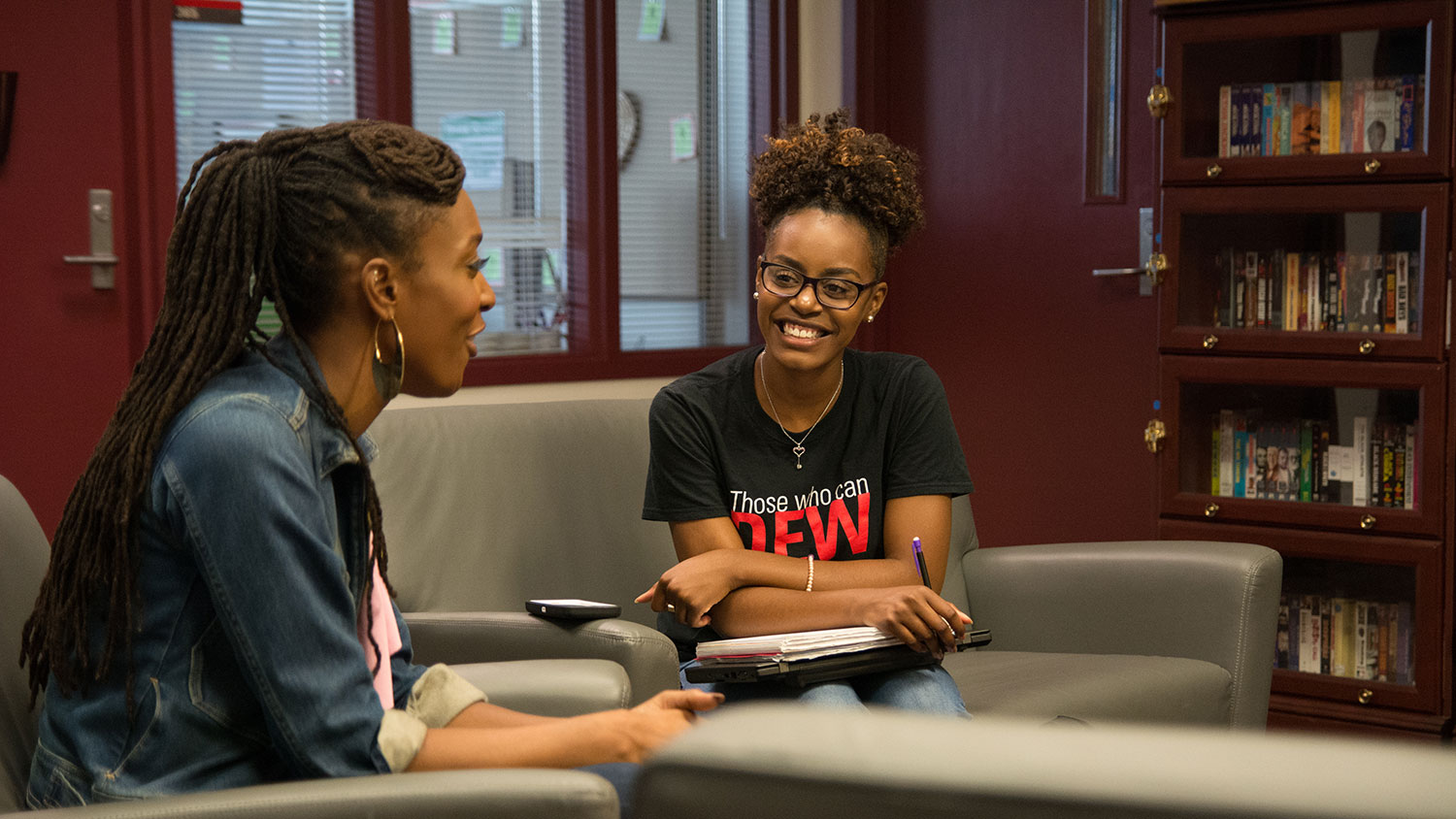Franchesca Ramsey Speaks on Being an Advocate, Activist and Ally

Social media gives users a tremendous reach they should not take for granted, Franchesca Ramsey told NC State students, faculty, staff and guests on Monday, October 23, 2017 in Witherspoon Cinema.
Ramsey, an actress, comedian and video blogger, spoke on “Your Powerful Online Voice: Social Media for Social Change” at the annual Fall Diversity Dialogue during Diversity Education Week.
“We have to acknowledge our differences to work together,” said Ramsey, starting with a story about the privilege that she animated with fellow YouTuber Kat Blaque called “Sometimes You’re a Caterpillar.” In the story, a caterpillar doesn’t understand why the snail has trouble following her friend under the fence. The message of the video is that sometimes we don’t understand other peoples’ issues because we’ve never experienced what they experience, but if we “stop and try to see the other side, we can help each other overcome those obstacles, together.”
Currently the host of MTV’s Decoded, a web series that tackles race, pop culture and more, Ramsey just filmed a pilot for a new Comedy Central show. “We’ve been doing Decoded for two years, we’ve most recently been nominated for a Webby Award, but there are limitations to what you can tackle in five minutes,” she told NBC News in April.
Ramsey started on YouTube and became famous overnight for her “Sh*t White Girls Say to Black Girls” video in 2012, which garnered over 1.5 million views in just a few hours. She’s most proud of her “How Slut Shaming Becomes Victim Blaming” video, which she also said was the hardest to make. In the video, she addressed her own experience with sexual assault.
Ramsey showed her dedication to using her platform for support and advocacy. “In a world that caters to privilege, loving and advocating for who you are becomes a revolutionary act,” said Ramsey. She urged those doing activism to stay focused and confident despite push-back and to set goals and be realistic about limitations and aspirations.
Ramsey left students, faculty, staff and guests with important steps that they can take to become better advocates and activists:
- Acknowledge and understand your privilege.
- Do your homework. Take responsibility for your own education.
- Own your mistakes and commit to change.
- Call out and make space to call in.
- Speak up, not over. You can’t always center your voice in every conversation.
- Bake your own cookies. Do the work because it’s important, not because someone will be there to reward you.
- Activism and allyship are like long division. Show your work.
Ramsey met with writers from Student Media and OIED before the event to answer questions. She included some words of advice for “multi-passionate” people like herself. “Pursue all the things that you are interested in and see where it takes you. You never know where those multi-interests are going to intertwine. Maybe there’s a way that you can take two or three fields you may be interested in and combine them in a unique way that’s going to really set you apart from other people.”
Ramsey was friendly and down-to-earth during the interviews and at the meet-and-greet with students. She made sure to speak to and take photographs with everyone in attendance, from students to faculty and staff.
She told student media, “I love coming to speak at colleges because it is so cool to actually meet the people who enjoy my content and engage with my work in a meaningful way. The internet is a difficult place, especially right now, and the types of issues that I talk about can make people upset. So, it’s nice to come into a space and meet the people who actually really enjoy the work that I do. It’s a nice reminder of why I do this work.”
- See the live tweets from this event on Twitter.
Austin Butler is a communications intern in the Office for Institutional Equity and Diversity. She is a senior majoring in science, technology and society.


